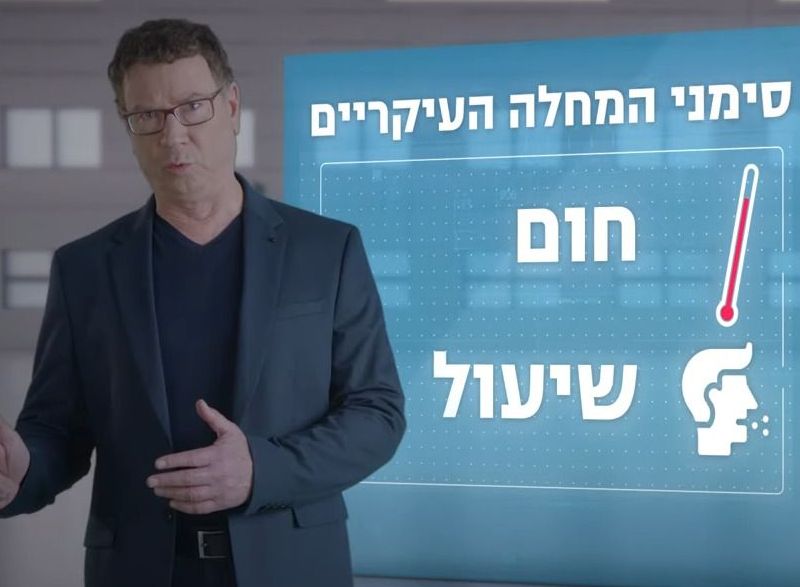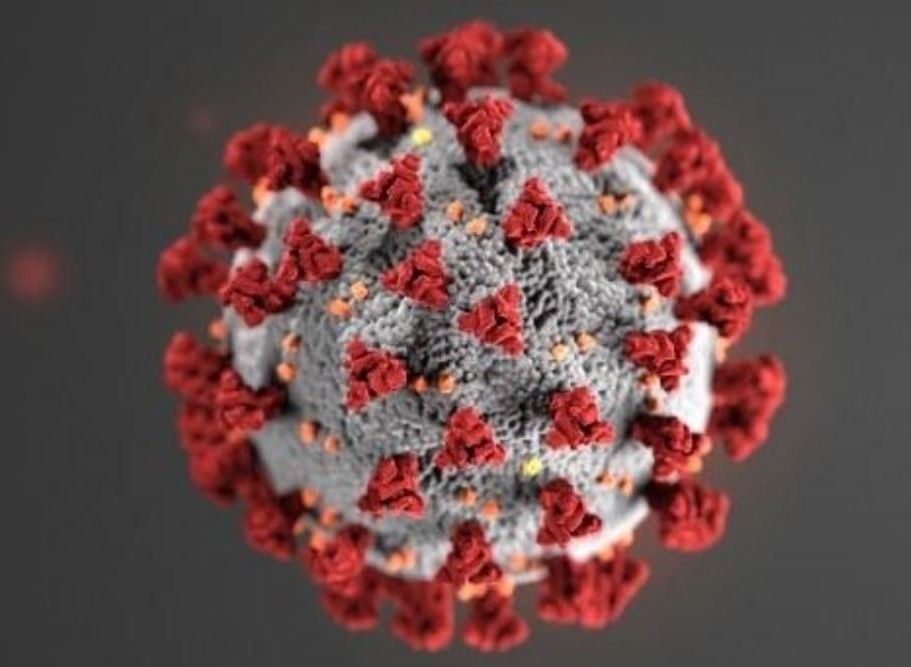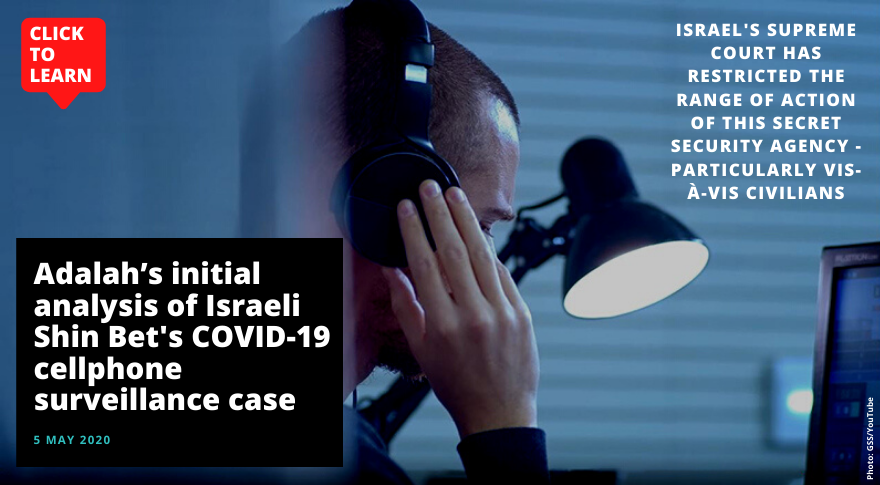In milestone decision, Supreme Court rules Israel can't legally use Shin Bet for COVID-19 surveillance of citizens
The Israeli Supreme Court delivered a decision on 26 April 2020 accepting arguments made by Adalah – The Legal Center for Arab Minority Rights in a petition demanding the cancellation of Emergency Regulations authorizing surveillance of cellphones of coronavirus patients and individuals who were in their vicinity.
Adalah filed a petition on March 18 on behalf of The Joint List against the Israeli prime minister, the Shin Bet, Israeli police, and the Israeli Health Ministry, arguing the government had no legal authority to decree these Emergency Regulations without the Knesset. On 19 March, after the Supreme Court issued an interim injunction limiting these practices, the Knesset resumed its activities and established an oversight committee to examine and supervise the implementation of these measures. Subsequently, the court cancelled the injunction based on the AG’s claim that the state fulfilled the courts’ orders.
Adalah and the Joint List returned to court on 5 April, filing an amended petition, this time demanding the cancellation of Emergency Regulations authorizing the police to exploit the cellular location data of Israeli citizens, and the extension of the Shin Bet’s powers under the General Security Services Law (GSS- 2002) to gather private information on Israeli citizens and residents as part of efforts to combat the coronavirus pandemic.
The court ruled on 26 April that the GSS Law does not allow the government to authorize the Shin Bet to extend their actions beyond those relating to national security. Thus, there was no legal authority for the Israeli government to use the Shin Bet for surveillance of citizens during the coronavirus pandemic, and the government and the Shin Bet must be subject to the rule of law. This decision is a milestone as, for the first time, the Court recognized restrictions on the Shin Bet’s powers pursuant to the GSS Law. However, although the Court recognized the illegality, it also gave the government and the Knesset time to propose and pass specific legislation on this matter, and during this interim period, the Shin Bet is allowed to continue to act.
In response to court’s decision, Adalah issued a statement:
Following up on the decision, Adalah sent a letter on 29 April to the Knesset Foreign Affairs and Defense Committee demanding they not approve the government decision authorizing the Shin Bet to continue the program for another week.
A new bill to amend the GSS Law and to allow the continuation of tracking by the Shin Bet has been proposed and is being considered by the Knesset.
Case Citation: HCJ 2109/20, Adv. Shahar Ben Meir v. Knesset; HCJ 2135/20, ACRI v. Prime Minister, HCJ 2141/20, Adalah and the Joint List v. The Prime Minister, et. al and HCJ 2187/20, The Journalists’ Union in Israel v. Prime Minister)
Related Press Releases:
- CORONAVIRUS: Adalah, Joint List petition Israeli Supreme Court against emergency regulations that allow Shin Bet security service to track citizens’ cellphones
- Arab Joint List, Adalah turn again to Supreme Court, demanding halt to Shin Bet’s invasive surveillance of citizens in struggle against coronavirus
- Supreme Court to hear petition against Israeli government's continued imposition of emergency coronavirus regulations















